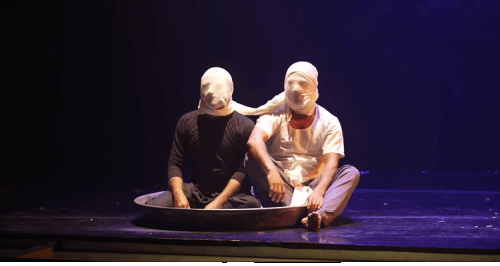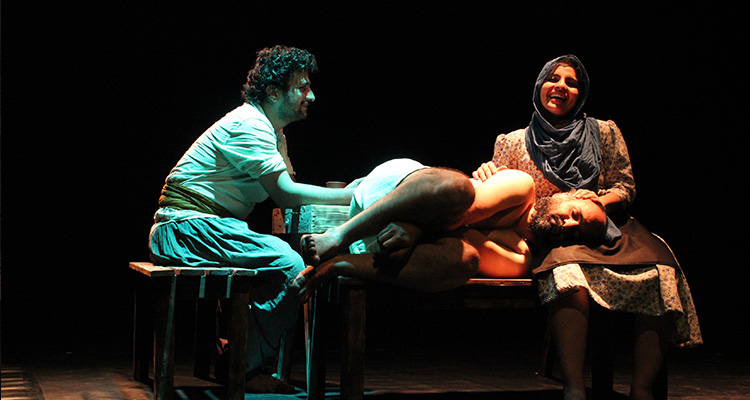Main Huun Yusuf Aur Ye Hai Mera Bhai
We watch some plays and choose not to watch some others. We remember some plays and others are forgotten. Surpassing all these categories, there are some plays that stay with you — permanently. The attempt to quantify those emotions in a number of words is futile. But words are all we have and words are all we can use.
Mein Hun Yusuf Aur Ye Hai Mera Bhai is a poignant tale that ventures into the exploration of different forms of love in different relationships. Ali loves Nada, but their union is not possible because of the oddity of Yusuf, Alis brother. The play is set in Palestine during the time of the expulsion of 1948.
What had been certain for so long has now become a time of uncertainty for the people of Palestine who have been thrown out from their homelands. In the words of Yusuf, Jan se pehle wo kaun the koi nahi janta tha. Jan ke bad hum kaun hain koi nahi janta (Who were they before before January nobody knew and who are we after January nobody knows).
The effects of the war and how it changed the course of the life of the millions of people involved, aches your heart, stirs your soul and numbs your mind. While the story initially focuses upon the love between Ali and Nada, the play is not just about that. It rises above to show Yusuf and Alis brotherly relationship that has trust and selflessness in all its quarrels.
The character of Yusuf is played exceptionally by Ajeet Singh Palawat. The stability in his acting from the first to the last scene has been maintained without any fluctuations. Idiosyncrasies of the character make him truly memorable. His gestures, the particular ways in which he runs and speaks makes him uniquely endearing. Other characters have held their performances with equal amount of finesse as well.
The play is a story about loss of space — individual and geographical spaces that the people are losing. The setup would have required countless locations to be shown, instead a bare stage was used as a metaphor to illustrate the space that is left to the people, said Mohit Takalkar, the director of the play.
He further went on to say that even though the play has been staged in English before, the language of Hindi was chosen consciously to spread the story to as many people as possible.
The play towards the end reveals the reason behind the odd behavior of Yusuf. A lack of good direction and dialogues might have led to the antagonizing of one of the characters, instead the audience believed and loved the characters more because of the pure emotions being poured on the stage. The play deserves accolades for portraying the loving relationship between Yusuf and Nada as well. A platonic relationship based on compassion and a promise.
The play has been nominated for the best innovative sound design. The achievement is a result of the 2 months of hard work which was exerted to sift through videos ranging in TBs (Terra byte) and then the desired sounds were achieved. It has a design and consists of the soundscape of the Palestinian land to bring the desired effect, informed Takalkar.
In a surprising instance, the characters of the play were put in a 12-day locked residency before and after the rehearsals to make the characters bond with each other. They ate, laughed and cooked together.
Characters were also provided physical sessions with an aim to express their emotions through their bodies. They were also shown Palestinian movies and documentaries to gain a deeper insight about the place and the people. It helped them in identifying the characters in a better way.
After 1 hour 40 minutes, the play ended but the claps didnt. The curtains went down and the audience stood up. The play achieved what it wanted to — understanding of different forms of love entangled in a political situation that needs to be heard and talked about.
— Samridhi Roy





Leave a reply